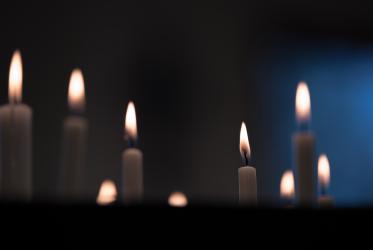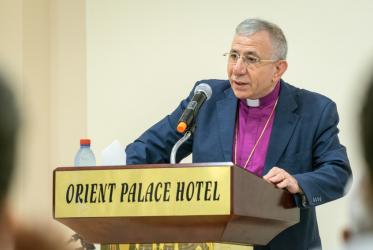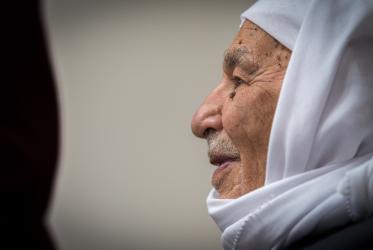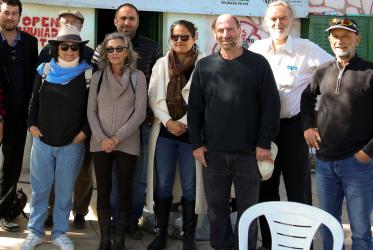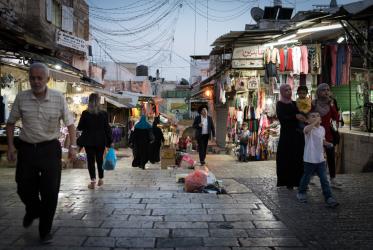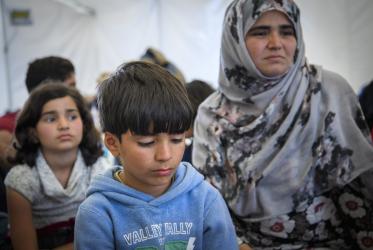Displaying 1 - 20 of 37
Planting trees and working for peace in Palestine
26 January 2022
Bishop Younan receives Catholic peace award
26 September 2019
Shabbat dinner ‘helps humanize two sides of the story’
27 March 2019
Rabbis walk through Hebron in solidarity
07 February 2019



